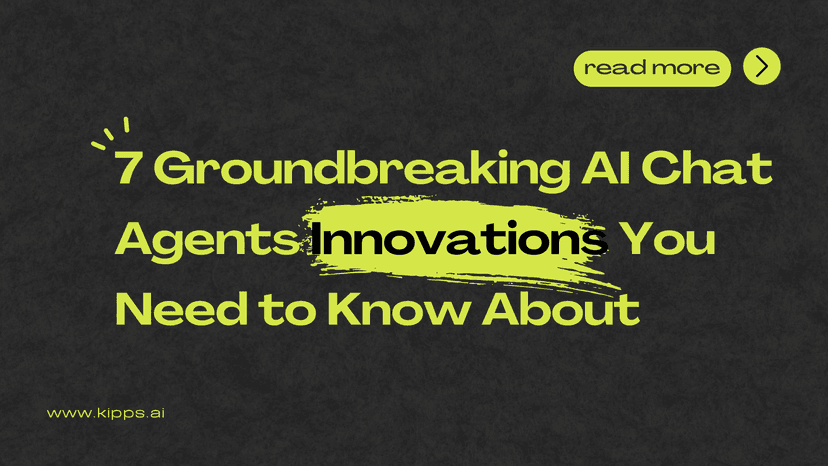7 Groundbreaking AI Chat Agents Innovations You Need to Know About
7 Groundbreaking AI Chat Agents Innovations You Need to Know About

Introduction
AI Chat Agents are rapidly evolving, bringing transformative innovations that are reshaping various industries. From enhancing customer engagement to streamlining business operations, these advancements are setting new standards for what AI Chat Agents can achieve. Here are seven groundbreaking AI Chat Agent innovations you need to know about.
1. Natural Language Processing (NLP) Improvements
Why: Advances in NLP have significantly enhanced the ability of AI Chat Agents to understand and respond to human language more naturally. These improvements allow Chat Agents to comprehend context, recognize nuances, and engage in more meaningful conversations. This leads to better user experiences and more effective interactions.
2. Voice-Activated Chat Agents
Why: Voice-activated Chat Agents, powered by technologies like Alexa and Google Assistant, are becoming increasingly popular. These Chat Agents allow users to interact using natural speech, making interactions more convenient and hands-free. They are particularly useful in environments where typing is impractical.
3. Emotional Intelligence
Why: Emotional intelligence in Chat Agents enables them to detect and respond to users’ emotions. By analyzing text and voice cues, these Chat Agents can adjust their responses to provide empathy and support. This innovation is crucial for customer service and mental health applications, where understanding user emotions is essential.
4. Multilingual Capabilities
Why: Multilingual Chat Agents can interact with users in multiple languages, breaking down language barriers and reaching a global audience. This capability is vital for businesses operating in diverse markets, as it allows them to provide consistent and inclusive support to all customers.
5. Advanced Personalization
Why: Personalization is key to delivering relevant and engaging experiences. AI Chat Agents are now leveraging advanced algorithms to offer highly personalized interactions based on user preferences, behavior, and history. This leads to more effective marketing, better customer service, and increased user satisfaction.
6. Integration with Internet of Things (IoT)
Why: Integrating AI Chat Agents with IoT devices allows for seamless control and monitoring of smart devices. For example, Chat Agents can manage home automation systems, track fitness data, and even control industrial machinery. This integration enhances the functionality of IoT devices and provides users with a unified control interface.
7. Self-Learning and Adaptation
Why: Self-learning Chat Agents use machine learning to continuously improve their performance. They learn from each interaction, adapting to new scenarios and improving their responses over time. This innovation ensures that Chat Agents remain effective and relevant, even as user needs and behaviours change.
Conclusion
AI Chat Agents are at the forefront of technological innovation, bringing new capabilities that enhance their functionality and impact. From improved natural language processing and emotional intelligence to multilingual support and IoT integration, these advancements are revolutionizing how businesses and individuals interact with technology. Staying informed about these innovations is crucial for leveraging the full potential of AI Chat Agents.
Interested in integrating the latest AI Chat Agent innovations into your business? Contact us at hello@kipps.ai today to discover how our advanced AI solutions can help you stay ahead of the curve and achieve your business goals.
👉 For more information about Kipps.AI follow us on Linkedin and you can sign-up on Kipp.AI here

Nishit Chittora
Author
Share this article
Help others discover this content

